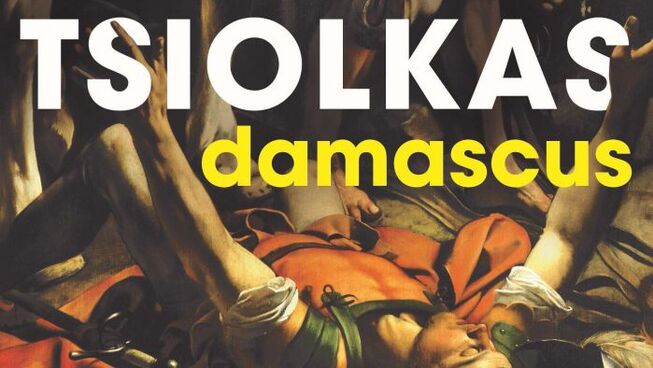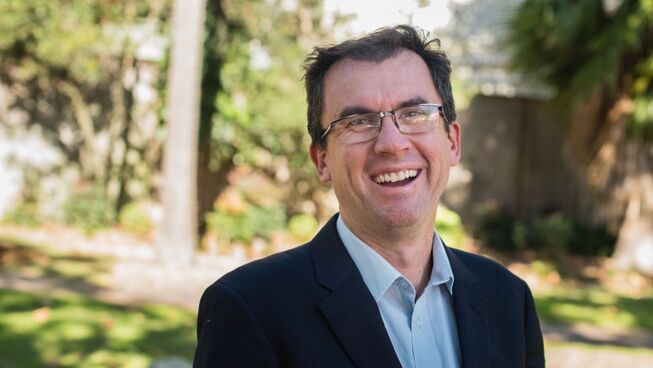
Christos Tsiolkas is an acclaimed and celebrated award winning Australian author, screen-writer and essayist. So I was intrigued when I heard he had written a novel exploring one of the world’s most influential religious figures - the Apostle Paul.
I must confess, I was a little skeptical as to how he would portray Paul of Tarsus. Yet, upon finishing Damascus, his interpretation of the Apostle Paul and the characters he encounters in the Ancient world was extraordinarily surprising.
Tsiolkas’ work perhaps demonstrates a subtle change in how the Christian faith is considered in mainstream culture today. For I daresay suggest that if a novel were written about the Apostle Paul ten to fifteen years ago when the New Atheists were dominating the global religious conversation (through authors like Richard Dawkins, Sam Harris and Christopher Hitchens), then I doubt we’d have a novel like Damascus.
The New Atheists wrote passionately and convinced many that society would clearly be better off without religion and that Christianity offered nothing to the flourishing of humanity - God was certainly not great. Perhaps the tone of such a new-atheist inspired historical fiction novel would have been far more insulting and critical of the fledgeling faith. Believers perhaps depicted as gullible, unreasonable, foolish and stupid and the lives of those following this new faith would have been demonstrably impoverished with women in particular noticeably disempowered and oppressed.
Yet surprisingly Tsiolkas throws no stones of derision, instead he upturns the radical negativity of new atheist interpretations of faith and creates a remarkable piece which demonstrates the radical beauty, and sheer counter cultural attractiveness of early Christianity in its cultural environment. He shows that this new Way, was particularly attractive to women, slaves, baby girls and the underprivileged. Tsiolkas demonstrates that there is something of beauty and substance to the pure Christian message. Themes of grace, forgiveness, acceptance, unconditional love and true equality demonstrate how radically different and appealing the Christian message was in the Ancient World - a world ruled by a brutal and merciless hierarchy (incidentally justified intellectually by appeals to reason), honour, and a society where women and slaves were clearly not equal with Roman men.
Yet the Ancient World created in Tsiolkas’ novel is no mere fiction - this faithfully represents the reality of early Christianity in its original cultural milieu. Moreover, this is precisely one of the reasons the Christian faith was attractive to many and grew. Rodney Stark in The Rise of Christianity proposes that the ultimate factor in the rise of Christianity in the Ancient World was that, "central Doctrines of Christianity prompted and sustained attractive, liberating and effective social relations and organisations". Starks’s assessment was that Christianity was clearly a force for good in the world and Tsiolkas graphically agrees and makes Stark’s conclusions come alive through his novel.
Tsiolkas masterfully captures the rawness, the dirtiness, the violence, the superstition and religiosity which dominated the Ancient World. Amidst this, he clearly depicts the danger and derision which accompanied belief in a new system of thought which was radically different to the prevailing Roman paganism.
Tsiolkas' book is simultaneously a fascinating and uncomfortable read. It’s depiction of death, blood, sex, violence and religious fanatasicm is raw and graphic. Yet whilst confronting, it does demonstrate how tough life was for the average person in the Ancient world.
However, whilst Tsiolkas has created a powerful narrative, his work is clearly fiction. He underplays the role and significance actual history played in the creation and governance of the early church. The (real) Apostle Paul was concerned for the accurate transmission of the Jesus tradition and early creeds, which clearly affirmed the historical Jesus’ death and resurrection (1 Cor 15:3-8) and also affirmed that if the resurrection was not real, then faith in Jesus was futile (1 Cor 15:17).
Furthermore, the early church was a literate community and was concerned for accurate recording and re-telling of the stories of Jesus. Hence the licence Tsiolkas takes in attempting to account for significant diversity of doctrine doesn’t accord with the literary experience of Paul and the early church.
Tsiolkas also underplays the new creation motif of Paul (2 Cor 5:17) and the Christian theological idea of new birth, which indicates a radical change of identity from sinful past, to one of being forgiven and found ‘in Christ’. Hence at times, Tsiolkas gave too much liberty to reflect on the impact of the characters’ lives pre-belief. This libertry afforded Tsiolkas fascinating reflections on doubt, but underplaying the security, confidence, peace and joy that believers possessed, from having a new identity ‘in Christ’.
In finishing Damascus, to be honest, I was surprised by how well the Christian faith was depicted. Perhaps I have been frustrated by too many thoughtless hatchet jobs, but this does indicate to me that Tsiolkas has engaged a deep and profound wrestle with the Apostle Paul - which makes him (and his work) a fascinating one to engage with.
At times I found Damascus graphic, at times squeamish, at times historically frustrating, at times wide-eyed in disbelief, at many times surprising. Yet to see how a non-believer wrestles with one of the most significant religious figures of history, I'm glad for the journey.
Literature is meant to be thought-provoking and Damascus provoked a lot of thoughts. If you’ve encountered Tsiolkas’ work, may this encourage you to engage afresh and the Apostle Paul of history and his great message of faith, hope and love.


